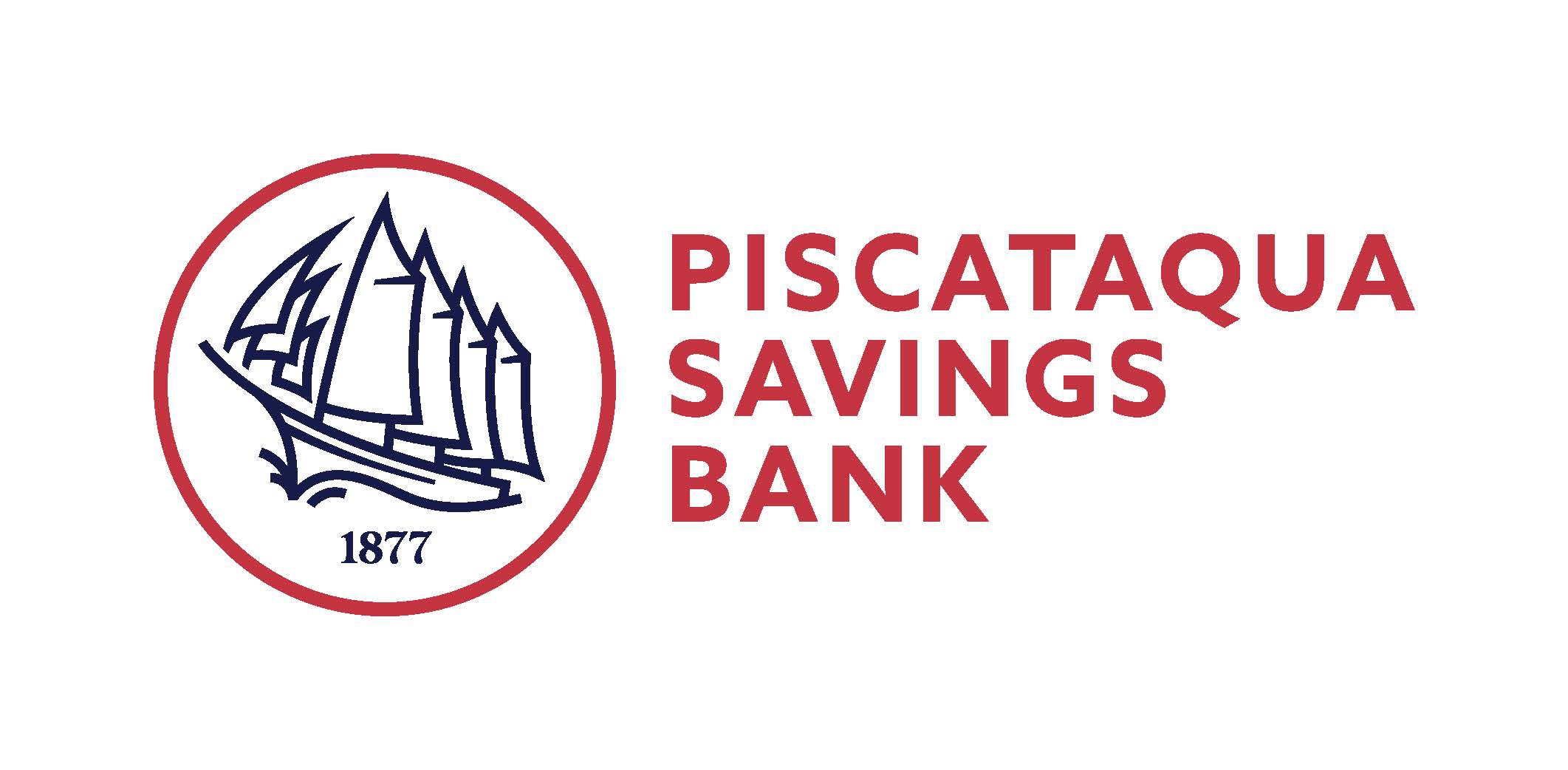Sponsors
Message from the President
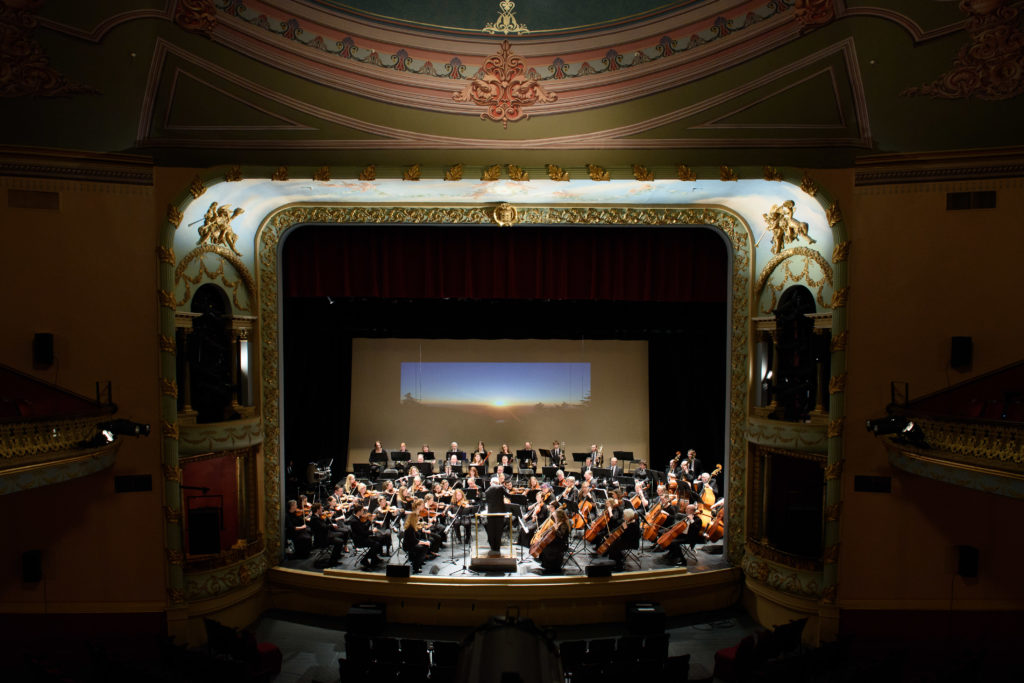
As the Portsmouth Symphony Orchestra embarks on this, it’s 25th season, our mission to entertain, educate and encourage the audiences of today and tomorrow has never felt more relevant. Making and experiencing music, in all forms, is a basic human instinct. Music is what connects us across geography, cultures and time. Music consoles us and inspires us. And music is for everyone.
Here on the Seacoast, the PSO takes its responsibility to keep the tradition of high-quality classical music alive and is committed, as part of this endeavor, to giving voice to talented composers and works from the genre that are perhaps less well known to audiences. We hope you’ll find this year’s programs reflect this ongoing commitment.
Just as a symphony is only made possible by the coming together of individual musicians to create something more than the sum of its parts, so too does the PSO as an organization rely on the contributions and investment of so many. This year we are grateful to our generous corporate sponsors, our committed individual donors, our community partners, my fellow board members, our talented Music Director John Page, the musicians, and of course YOU—our dedicated and enthusiastic audience.
Whether this is your first concert, or you are an annual subscriber, we are thrilled to have you as part of the PSO family. Welcome and thank you for your continued support.
Now, on with the season.
David Young
President of the Board of Directors
Message from the Music Director
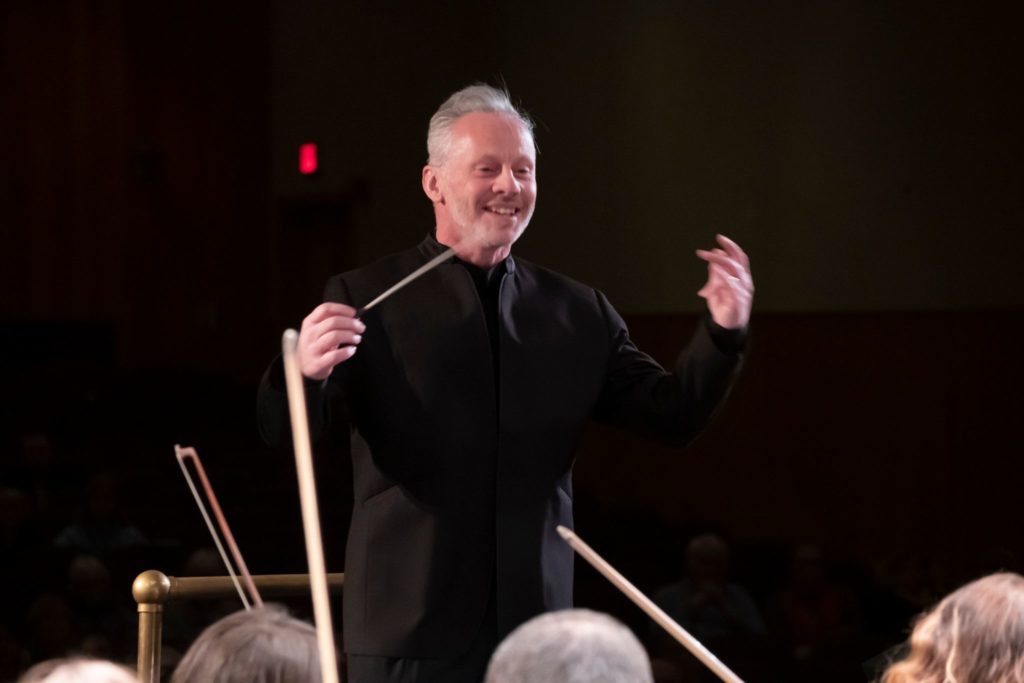
There’s a lot to be excited about during the PSO’s 25th season. This year, the orchestra will be performing a collection of deeply evocative pieces that will challenge both the musicians and the audience to explore the full range of human emotions.
As we all know, landscapes have the power to inspire us and stir different emotions and many of this year’s composers were powerfully influenced by landscapes—Mahler by the Austrian lakes and mountains, Sibelius by the dramatic landscape of Finland, and Elgar by the bucolic rolling hill of England’s Malverns. Audiences can look forward to works by these composers as well as those by Walker, Still, Beethoven, and Fung.
We’ll also welcome talented guest performers Ben DiScipio (tenor) in December and Ko-Eun Yi (pianist) in March; and, for the New Year’s Eve concert, we welcome back guest conductor Dirk Hillyer. In June, audiences will be treated to a performance by the winner of the 2023 Young Artist Competition.
We’re looking forward to making music together and are so happy you are here to share it with us.
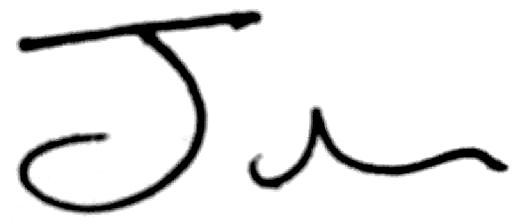
John Page
Music Director
Program Listing
Dust Devils | Vivian Fung |
Piano Concerto No. 2 in C Minor, op. 18III. Allegro Scherzando Young Artist Concerto Competition Winner | Sergei Rachmaninoff |
—Intermission— | |
Enigma Variations (Variations on an Original Theme), op. 36Enigma: Andante
| Edward Elgar |
Vivian Fung, Composer
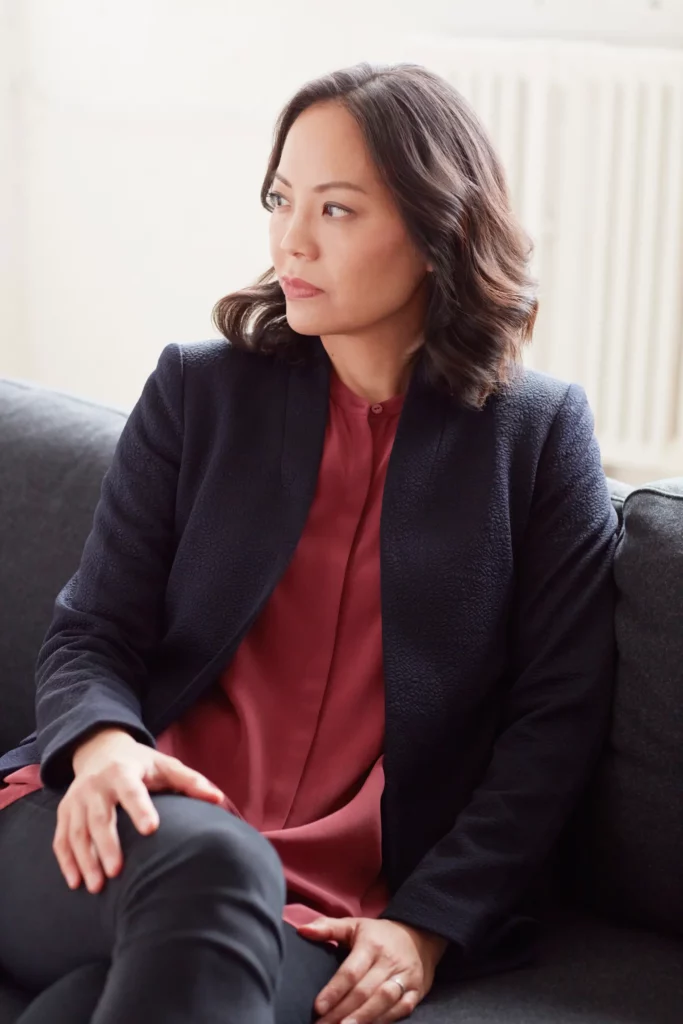
JUNO Award-winning composer Vivian Fung has a unique talent for combining idiosyncratic textures and styles into large-scale works, reflecting her multicultural background. NPR calls her “one of today’s most eclectic composers.”
Highlights of upcoming performances include the world premiere of Vivian Fung’s fifth String Quartet by Canada’s Lafayette String Quartet and a new piece for Houston’s ROCO; international performances of her critically-acclaimed elegy for the pandemic, Prayer; and the European premieres of A Child’s Dream of Toys at Germany’s Theater Erfurt, Baroque Melting with Switzerland’s Berner Symphonieorchester led by Gemma New, and Prayer by the Argovia Philharmonic. Mary Elizabeth Bowden tours her Trumpet Concerto to Philharmonia Northwest, Waynesboro Symphony, San José Chamber Orchestra. Fung is the 2023 Composer-in-Residence at Alba Music Festival Composition Program in Italy.
Fung is currently at work on a new project about identity with soprano Andrea Nunez and Royce Vavrek, percussion works for Network for New Music and Ensemble for These Times, a piano work for the “Ligeti Etudes meets 18 Composers” commissioning project, and a commission by Cape Cod Chamber Music Society. A portrait album featuring the Jasper Quartet in Vivian Fung’s first four string quartets will be released on Sono Luminus in 2023, and Elizabeth Bowden has recorded her Trumpet Concerto with the Chicago Youth Symphony Orchestras for future release on Çedille Records.
Recent season highlights include the world premiere of new flute concerto, Storm Within, by the Vancouver Symphony Orchestra and principal flutist Christie Reside; the digital world premiere of two operatic scenes based on Fung’s oral family history in Cambodia with librettist Royce Vavrek, part of Edmonton Opera’s The Wild Rose Opera Project; and the world premiere of String Quartet No. 4 “Insects and Machines” by the American String Quartet. In July 2020, the CBC’s Virtual Orchestra gave the world premiere of Fung’s Prayer, a unique work recorded in isolation for an online performance led by conductor Yannick Nézet-Séguin during the COVID-19 pandemic.
Fung has a deep interest in exploring cultures through travel and research. She traveled to Southwest China in 2012 to study minority music and cultures, continuing research that previously inspired Yunnan Folk Songs (2011). As a composer whose trips often inspire her music, Fung has also explored diverse cultures in North Vietnam, Spain, and Indonesia. She toured Bali three times, and competed in the Bali Arts Festival as an ensemble member and composer in Gamelan Dharma Swara. With a grant from the Canada Council, she and Royce Vavrek will travel to Cambodia in 2023 to continue research for a new opera based on her family’s experience surviving the Cambodian genocide.
In 2012, Naxos Canadian Classics released a recording of Fung’s Violin Concerto [No.1],, commissioned by the Metropolis Ensemble, which earned Fung the 2013 JUNO Award for “Classical Composition of the Year.” Several of Fung’s other works have also been released commercially on the Telarc, Çedille, Innova, and Signpost labels.
Fung has mentored young composers in programs at the London Symphony Orchestra, American Composers Forum, San Francisco Contemporary Chamber Players, and Cabrillo Festival of Contemporary Music. She is an associate composer of the Canadian Music Centre and served on the board of the American Composers Forum, and has been a guest educator at many organizations including the Mostly Modern Summer Music Festival, the New York State School Music Association, and coming up at the Longy School and Luna Composition Lab.
Born in Canada, Fung received her doctorate from The Juilliard School, where her mentors included David Diamond and Robert Beaser. She currently lives in California with her husband Charles Boudreau, their son Julian, and their shiba inu Mulan. Learn more at www.vivianfung.ca.
Roxane Park, Young Artist Competition Winner
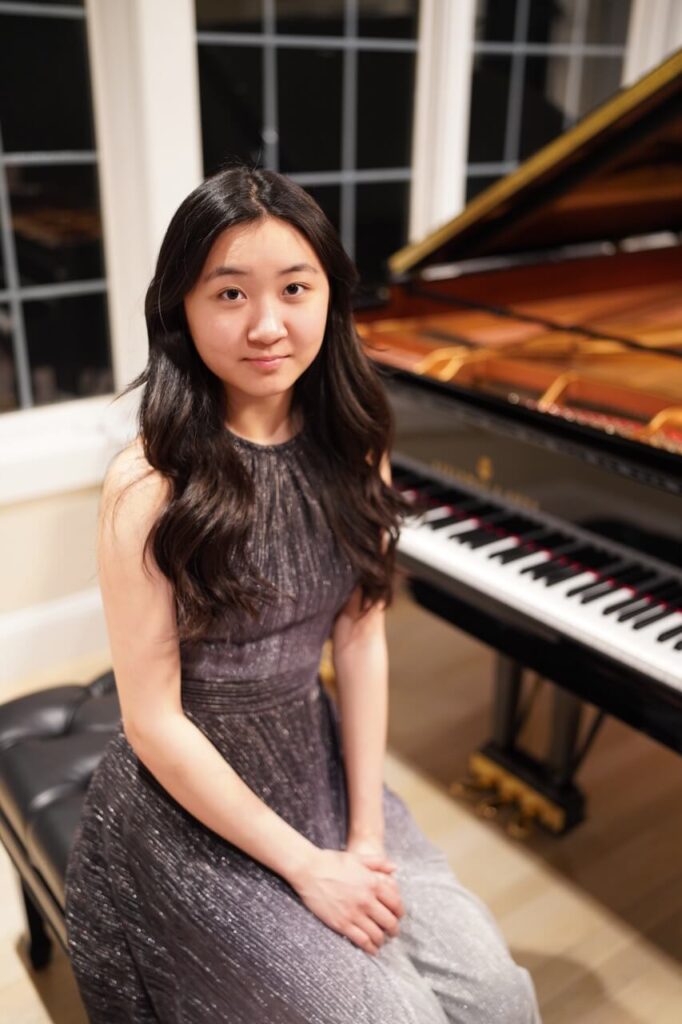
Roxane Park is an 10th grader at Phillips Exeter Academy in Exeter, NH. She is a student of Mila Filatova, Silvana Sokolov, and Alexander Korsantia. Roxane has competed in international competitions (Gina Bachauer, Rosalyn Tureck, Kaufman) and received top prizes at competitions, including the National MTNA Competition (where she was also awarded the Chopin Prize), Paderewski International Competition, Bradshaw & Buono International Piano Competition, New England Piano Teachers’ Association, and Steinway Society of Massachusetts Piano Competition.
In addition to performing multiple times at Carnegie Hall and Boston’s Symphony Hall, Roxane has also performed in public master classes with Simone Dinnerstein, Andreas Klein, Alexander Kobrin, John Perry, and Yuan Sheng. Roxane performed at the International Chopin Piano Festival, “Lato z Chopinem,” in Busko-Zdroj, Poland. She was featured in episode 372 of NPR’s From the Top with guest host Jeremy Denk at Dartmouth College’s Spaulding Auditorium and in the From the Top Virtual Gala in 2020.
Outside of music, Roxane loves writing poetry and short stories. She is the recipient of a Caroline D. Bradley Scholarship, a full four-year, merit-based high school scholarship.
Musicians
Violin I
- Zoia Bologovsky
Concertmaster - Aniko Geladze
Assoc. Concertmaster - Jeongyoon Han
- Louise Kandle
- Sargis Karapetyan
- Susan Holcomb
- Rachel Swanson
- Lorna Ellis
- Jeff Sullivan
- Kristin Sullivan
- Onur Dilisen
- Ashley Freeman
- Lisa Hollis
- Sai-Ly Acosta
Violin II
- Ashley Offret*
- Susan Streiff**
- Becca Bannon
- Lauren Alter
- Paul Pinard
- Megan Fedor
- Evelyn Laux
- Jim Bullock
- Samuel Lyons
- Abigail Sykes
Viola
- Theresa Jaques*
- Wendy Keyes**
- Jan Heirtzler
- Eric Salas
- Brandon White
- Nickolas Kaynor
- Maggie Chutter
- Thalia Dain
- Craig Peverly
- Aleksandre Roderick-Lorenz
- Cello
- Gary Hodges*
- Larry Veal**
- Melissa Ambrose
- Eli Kaynor
- Fay Rubin
- Lauren Wool
- Griffin Seuter
- Kari Jukka-Pekka Vainio
- Kurt Villiard
- Molly Goldstein
Double Bass
- Nathan Therrien*
- David Hirsch
- Robert Hoffman
- Jason Noah Summerfield
- Joseph Annicchiarico
Flute
- Aubrie Dionne*
- Erin Dubois
- Laurel Crawford
Piccolo
- Erin Dubois
Oboe
- Sarah Krebs*
- Amanda Doiron
- Jill Hoffmann
English Horn
- Jill Hoffmann
Clarinet
- John Ferraro*
- Santiago Baena Flórez
- David Young
Eb Clarinet
David Young
Bass Clarinet
- Santiago Baena Flórez
Bassoon
- Melissa Grady*
- Rick Shepard
- Teresa Myers
Contrabassoon
- Teresa Myers
Horn
- Nicholas Kneupper*
- Susan Williams*
- Gray Ferris
- Kathleen Keene
Trumpet
- Adam Gallant*
- David Shepherd
- Will Lauzon
Trombone
- Brandon Newbould*
- Josh Gagnon
Bass Trombone
- Phil Hyman
Tuba
- Cam Cawley*
Timpani
- Steve Cirillo*
Percussion
- Timur Rubinshteyn*
- Mike Williams
- Alyssa Ostrowski
Harp
- Sorana Scarlat
Piano and Organ
- Seth Hurd
Perform with the PSO
The Portsmouth Symphony Orchestra seeks classical musicians in the community to audition for a place in the orchestra.
We invite all musicians, from professionals and educators to devoted amateurs and highly
accomplished students to audition for a place in the orchestra.
Dust Devils
Vivian Fung
Dust Devils is the journey of emotional swirls in my mind, sometimes calm, but more often than not, full of raw and intense energy. The opening starts quite forcefully and darts back and forth, culminating in a fiery pounding of the timpani, which wanes and brings this section to mere silent breaths in the brass. A slow section ensues, filled with upward cascades of arpeggios that interrupt the ethereal atmosphere. An ominous eerie string section follows leading to a powerful chorale in the brass, which overtakes the music and brings the 10- minute work to an emphatic close.
From vivianfung.ca
Variations on an Original Theme (“Enigma”), op. 36
Edward Elgar
Elgar’s first significant, acclaimed work, the Variations, was given its première in 1899, conducted by the great Hans Richter. It was an immediate success, and garnered performances and praise in Europe—including from Richard Strauss. Not bad for a composer of modest reputation who had chiefly labored far from the bustle of London. Although he had been steadily building his reputation in provincial English cities as a well-respected composer of cantatas and the like, an orchestral work on the scale of the so-called “Enigma” Variations seemed to be without precedent. What is clear, however, is that, at the age of forty-two, he had served his apprenticeship well, and years of experience laid a solid foundation for his most famous work—especially his vaunted mastery of orchestration.
The importance of the composition and its delightful “enigma” generated an enormous interest and speculation, which has continued unabated to the present. The genesis of it is well known, for Elgar left ample record of his thoughts. Apparently, after a long day of teaching, he trudged into the house, and his wife said something to the effect that he looked like he could use a good cigar. He indulged himself, sat down at the piano and was improvising rather desultorily, when his wife, Alice, said that she liked one of the tunes, and he continued improvising little variations on the tune that reflected some aspect of the personalities of his close friends. The rest is history. On the score, over each variation, Elgar wrote either the initials of each friend, or in a few cases, a name or nickname. Who these folks are and some of their “characteristics” limned by the composer is known, now, but that was not the enigma. The tune, itself is clear; we hear it straightway, at the beginning. It’s a simple little affair: a short motive of four notes, preceded by a rest, heard six times, half of them in reverse rhythm—a wonder of musical concision. And then follow thirteen variations, one each for thirteen friends, and a last variation about the composer, himself. So what is the “enigma?”
Elgar spoke several times of a “larger theme” that runs throughout the work, but is “not played.” Furthermore, he referred to its “dark saying,” declaring that it would remain a mystery. And why even call the work “Enigma,” in the first place? Generations have tried to solve the mystery, to no avail. All manner of tunes have been adduced as the mystery tune—including “Pop Goes the Weasel.” Elgar created a mystery and it remains a mystery, for the composer took it with him to the grave.
The short theme is heard first, with a brief contrasting section before the theme returns. The first variation (C.A.E.) follows immediately, dedicated to his beloved wife, Caroline Alice Elgar. The second variation (H.D.S.-P.) is a tribute to Hew David Steuart-Powell, an amateur musician at whose chromatic warm-ups Elgar gently poked fun. (R.B.T.) Richard Baxter Townshend follows, a send up the amateur thespian’s breaking voice, rather like an adolescent boy. After two more variations we arrive at No. 7 (“Ysolbel”), a viola student of Elgar, depicted by a solo viola playing a passage that sounds a bit like an etude for that instrument. Variations 8 and 9 refer to Troyte Griffiths, an architect who was a rather poor pianist—you can hear it—and Winifred Norbury, whose calm personality is there in the variation. A held note in a sole violin unmistakably leads into the next variation—the most beloved of them all.
“Nimrod” holds a special place in the hearts of Britons, for its magnificent grandiloquence and poignancy, and one hears it played publically in times of great tragedy or circumstance—rather like Barber’s Adagio for Strings in this country. It is dedicated to Elgar’s best friend, Augustus Jaeger. Jäger, of course, is German for “hunter,” and Nimrod was the great hunter in the Old Testament.
“Dorabella” was a good friend, whose stutter is famously depicted in the little flutter in the woodwinds. Variation 11 hilariously tells the incident wherein Dan, the bulldog of friend, George Sinclair, falls down the bank of a steam, paddles along, and barks happily upon his exit from the water. “B.G.N.” was a cellist (he inspired the cello concerto), and so he gets a little cello solo, here. The mysterious “* * *” left on a sea voyage before Elgar could get permission for the dedications, so she is anonymous, here. A quotation from Mendelssohn’s “Calm Sea and Prosperous Voyage,” is heard in the solo clarinet, with the timpani contributing some nautical engine noises.
Finally, the fourteenth and last variation is of Elgar, himself (“E.D.U” from his wife’s pet name for him—the German, Eduard. It is telling that in this music ostensibly about himself, he uses the material from the two variations dedicated to the persons most important in his life, his wife, “C.A.E,” and his great friend, “Nimrod.” Elgar was a complex man, but it is a certainty that his enjoyment of friendship and the love of others was central to his being, and the work perfectly illustrates that.
–Wm. E. Runyan
© 2015 William E. Runyan
Up Next
Donors
- Donna Saunders & Michael Chubrich
- Josephine Lamprey
- Robert & Cyndi Bear
- Lawrence & Linda Connell
- Margot Doering
- Mrs Roger M Doering
- Chris Dwyer & Mike Huxtable
- Lorraine T. Keazer
- Clinton Frederick Miller MD
- The Montrone Family
- Kate & David Murray
- Andrew Park
- QHT Inc.
- Ellen Griffin Saas
- Mike Schwartz & Sharyn Potter
- Lucinda Spaney
- Rachel & Nate Swanson
- Katherine Wells Wheeler
- The Allayne & Douglas Wick Foundation
- David & Sarah Young
- Catherine Anderson
- Kevin Baum
- Diana Bourns
- Steve Cirillo
- Jeffrey & Penelope Gilbert
- Craig & Shirley Peverly
- Fay Rubin
- Anonymous
- Anonymous
- John Ahlgren
- Chris & Mimi Brett
- Don & Mary Jo Briselden
- Louis F. Clarizio DDS
- Sally Crawford & Peter Wells
- Jeff & Barbara Diefendorf
- Charles Doleac
- David & Marion Ellis
- Fred & Barbara Engelbach
- Jeanette & Conrad Fagone
- Brian Fitzgerald
- Jameson & Priscilla French
- Thomas Harford
- David Hirsch
- Judith Howard & David Meikle
- Lindsey Humes
- Edward Mallon
- Elizabeth Connell Nielsen
- Sherrill Nixon
- Prince/Bergh Family Fund
- Barbara & Robert Schultz
- Jeanne & Derek Stern
- Barbara Sweet
- May-Win Thein
- Michael Thiel & Gail Richard
- Jo Ellen Thomas
- David Tong
- Bruce Valley
- Andre & Edwinna Vanderzanden
- Philip D Winslow
- Nancy Zadravec
- Anonymous
- Richard Candee
- Ed & Janet Caylor
- La Belle Chocolat
- Rachel Connell
- Marcia Van Dyke
- Paul & Linda Hamlen
- Cynthia & Michael Harvell
- Andrew & Pamela Kulesza
- Jacqueline Palmatier
- David A. Taylor
- Robyn Aldo
- Robin Avery & Philip Dunphy
- James and Susan Baldini
- Fran I Bechtold
- Lawrence Cataldo
- Kenneth Clark
- Anthony Codding
- Gail Drobnyk
- Marvin Fry
- Kenneth Fuld
- Sarah Gayer
- Gilbert Loughlin Family
- Jan & David Heirtzler
- Louise Hirschburg
- Marylaine & David Hobson
- Robert C Larkin
- Keith Lauder
- Virginia Macdonald
- Frank Manter
- Elaine & Steven Molleur
- Bruce & Lori Myers
- Janine Quinn & David Frolio
- Emma Rous
- Johanna de Ruiter
- David & Eleonore Sanderson
- Lex Scourby
- Betsy Shelley
- James and Cheryl Verra
- Stuart & Gisela Wemple
- Mara Witzling & Peter Cass
- Gerald M Zelin
- Anonymous
- Alice Anderson
- Bess4sahara
- Peter Bowman
- Nancy Braese
- Frank Brako & Stacey Isles
- John Pendleton and Elizabeth Carruthers
- Phil Cocco
- Leslie Couse
- Michael Dater
- Lynn DiElsi
- Larry Drake
- Geraldine Eastler & Jonathan Sutton
- Kathryn Ellis
- Glenda & Ed Fischer
- Elaine X Fuller
- Helen Gettelman
- Susan Gough
- Gregory E Griffith
- Roy William Helsel
- Philip R Hepburn
- Mark & Mary Ann Janos
- Cynthia & Jeffrey Knapp
- Evelyn Laux
- Joyce & Donald Marchand
- Elissa Margolin
- Caroline McElroy
- Richard Mechaber
- Carol Miller
- Cliff Mommsen
- Alessandro Levi Montalcini
- Sarah Murphy
- Jane Page
- Caroline & Nathanael Piper
- Paula Rais
- Karen Rowland
- Lawrence Singer
- Martha E Stone
- Robert Sullivan
- Ann H Tarlton
- Heather & Len Thomsen
- Mr & Mrs Richard F Topping
- Carolyn Vinica
- David & Ilona Weber
- Anonymous
- Anonymous
Board of Directors
- David Young, President
- Kate Murray, Vice President
- Jeffrey Gilbert, Treasurer
- Fay Rubin, Secretary
- Lawrence Connell
- Beverly Giblin
- Melissa Grady
- Jan Heirtzler
- Paul Lanzoni
- Craig Peverly
- Eric Salas
- Donna Saunders
- Michael Schwartz
- Rachel Swanson
Staff & Volunteers
- Caroline Amport Piper, Director of Communications
- Aubrie Dionne, Director of Outreach
- Erin Dubois, Administrative Assistant
- Jan Heirtzler, Librarian
- Craig Peverly, Equipment Manager
- Adam Gallant, Personnel Manager
- Rachel Swanson, Graphic Design




